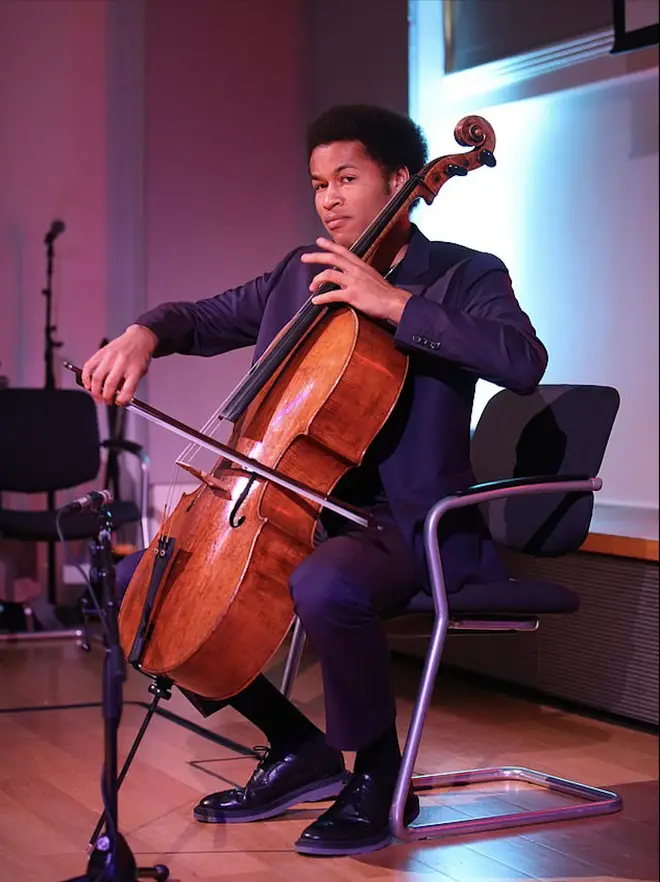
Iain Dale 7pm - 10pm
5 March 2024, 08:29 | Updated: 5 March 2024, 10:23

Music brings people together - unless it’s Rule, Britannia! as the Labour shadow culture secretary claims the song is 'alienating' to many people.
Thangam Debbonaire said that culture should be "accessible for everyone" and that the British patriotic song can make many feel left out.
These comments come after cellist Sheku Kanneh-Mason, who performed at Harry and Meghan’s wedding in 2018, said that playing the song at the Last Night of the Proms would make Britons feel uncomfortable.
“A lot of people would agree with him,” according to the MP for Bristol West.
Instead of Rule, Britannia! being played at the Proms, the 24-year-old musician said it could be replaced with British folk music.
In an interview with The Spectator's Women with Balls podcast, Ms Debbonaire was accepting of the possibility with replacing the classic.

"It's not my favourite bit of music. And the Proms is a fantastic institution and it's the world's greatest music festival," she said.
"It's a decision for the people who run the Proms and it shouldn't be politicians who tell people how to run cultural events.
"I think for a lot of people that feels like a very sort of British moment, which I think has to be respected as well, but for a lot of people, as Sheku Kanneh-Mason said, it will feel alienating."
The Labour MP added: "As I want the Proms – I want culture – to be accessible to everyone, I think it's a good debate for us to be having."

Those who are against the anthem have claimed it generates associations with slavery and Britain's colonial past.
On the opposite side of the debate, Conservative deputy chairman Jack Lopresti said: "It should come as no surprise that Labour are happy to run roughshod over our national traditions.
"After all, this is the same party whose leader [Sir Keir Starmer] says his favourite piece of classical music was the EU's anthem Ode to Joy."
Read more: Student banned from university union for saying 'Rule Britannia' during debate
Read more: Experts' heated debate over whether Rule Britannia should be scrapped
Ms Debbonaire's stance comes four years after the BBC was forced into a U-turn and brought back the singing of the song after the Proms originally planned to just play an instrumental version.
Professional musician Lorraine, who played at the 2020 proms, told LBC's Nick Ferrari that Rule, Britannia! and Land of Hope and Glory are "dated" and suit "this xenophobic country".
She added: "Rule, Britannia and Land of Hope and Glory are jingoistic, dated, arrogant and cringe-making - and quite frankly, that suits this xenophobic country and Brexit."
Nick suggested that if she doesn't like it, she shouldn't watch it, but Lorraine pointed out: "It's not about not watching it. I have to blooming play the stuff!

Professional Musician: Land of Hope and Glory suits Brexit Britain
"I'm a professional musician and I find it very cringe-making."
A spokesman for Rishi Sunak said: "The prime minister is very clear that it should continue to be sung and proudly."
Sir Jacob Rees-Mogg said the song was "uniting", and "about the marvellous history of this country to which every British citizen belongs.
"The overwhelming majority of people are proud of Britain, proud of its history, and this is encapsulated in the very stirring words of Rule, Britannia!" the former minister told The Daily Telegraph.

Jacob Rees-Mogg plays Rule, Britannia! in the House of Commons
The song has even caused great controversy outside of the musical sphere.
In 2020, a student was reprimanded by officials at Aberdeen University Students' Association after using "discriminatory or racist language" by saying "Rule Britannia!" during a debate about the British Army.
Union officials told Ms Heverin: "The language used by you, in particular the use of the phrase 'Rule Britannia', could be construed as potentially discriminatory".
However, they were unable to determine whether there was "deliberate racist intent"
It came after a fellow student complained about her use of the phrase.
Rule, Britannia is based on the 1740 poem written by James Thomson and is associated with the Royal Navy and British Army.